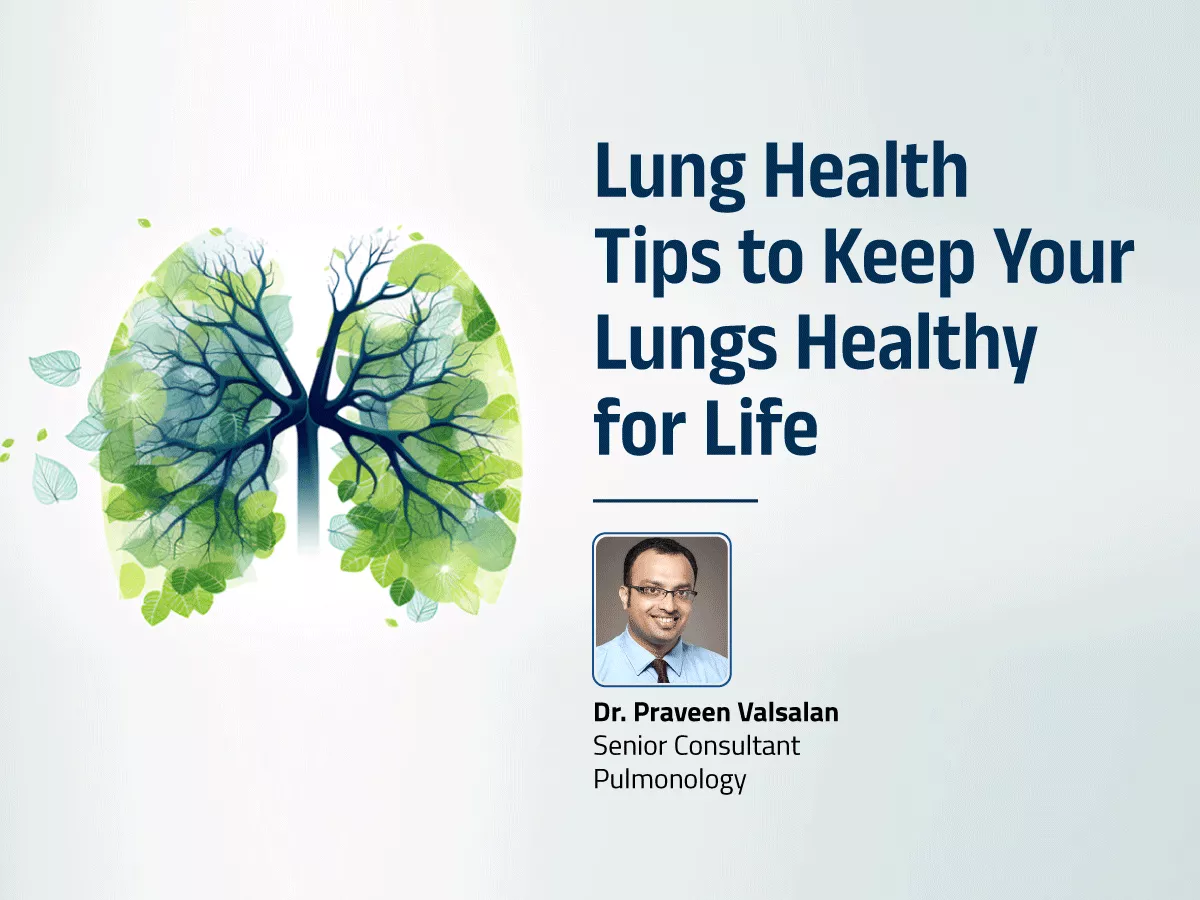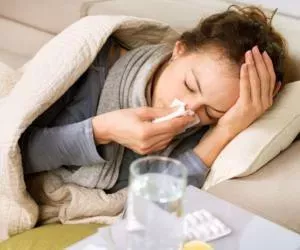It is on organ that is exposed to atmosphere. All the pollutants that we breathe in. whatever that is there in the atmosphere gets into the lungs and can damage it. So is us vital that we do everything to keep the lungs healthy. Our lungs are essential for life, allowing us to take in oxygen and expel carbon dioxide. Maintaining lung health is crucial for overall well-being and preventing chronic respiratory diseases like asthma, chronic obstructive pulmonary disease (COPD), and lung cancer. In today’s world, where air pollution, smoking, and respiratory infections pose significant risks, it is more important than ever to protect and strengthen our lungs. This blog will offer practical tips to help you maintain lung health and improve your respiratory function throughout your life.
1. Don’t Smoke – And Quit if You Do
Smoking is one of the leading causes of lung disease, including lung cancer and COPD. Cigarettes, as well as other tobacco products, contain harmful chemicals that damage the lung tissue, cause inflammation, and narrow airways. Over time, smoking leads to reduced lung capacity, chronic cough, shortness of breath, and permanent lung damage.
Tips to Quit Smoking:
- Seek support: Join a smoking cessation program or consult with a healthcare provider for strategies like nicotine replacement therapy or prescription medications.
- Build a quit plan: Set a quit date and identify triggers that make you want to smoke, then create coping strategies to manage them.
- Stay persistent: Quitting smoking can be difficult, but every attempt brings you closer to success. Don’t hesitate to seek help from support groups or a counselor.
2. Avoid Exposure to Secondhand Smoke
Even if you don’t smoke, exposure to secondhand smoke can still harm your lungs. Secondhand smoke contains many of the same toxins as direct smoking and can increase your risk of developing lung cancer, respiratory infections, and asthma.
Ways to Minimize Exposure:
- Avoid being in places where smoking is allowed, like certain bars or restaurants.
- Politely ask smokers to smoke outside and away from entrances and ventilation areas.
- Educate others in your household about the dangers of secondhand smoke and create a smoke-free environment at home.
3. Minimize Exposure to Indoor and Outdoor Air Pollution
Air pollution is a significant risk to lung health, contributing to respiratory diseases and exacerbating conditions like asthma and COPD. Indoor pollutants such as dust, mold, and household chemicals can also irritate the lungs.
How to Protect Yourself from Pollution:
- Indoor air: Ensure your home is well-ventilated and regularly cleaned to remove dust and allergens. Avoid using harsh chemical cleaners, and consider investing in an air purifier, especially if you live in an area prone to poor air quality.
- Outdoor air: Check your local air quality index (AQI) regularly, especially if you have a preexisting lung condition. Avoid outdoor exercise or activities when pollution levels are high, and wear a mask if necessary.
- Avoid burning wood or trash: These activities can release harmful pollutants into the air. Opt for clean energy alternatives and avoid exposure to smoke from burning materials.
4. Exercise Regularly to Strengthen Your Lungs
Regular physical activity is one of the best ways to keep your lungs strong and improve their capacity. Exercise helps your lungs work more efficiently by increasing oxygen exchange and strengthening the muscles that support breathing.
Best Exercises for Lung Health:
- Aerobic activities: Walking, swimming, cycling, and dancing improve cardiovascular fitness and increase lung capacity.
- Breathing exercises: Simple breathing techniques, such as deep breathing or diaphragmatic breathing, help strengthen your lungs and increase oxygen intake. Try inhaling deeply through your nose, holding for a few seconds, and then exhaling slowly through your mouth.
- Even people with respiratory conditions can benefit from exercise—just be sure to consult with a healthcare provider or respiratory therapist to develop an appropriate plan.
5. Practice Deep Breathing and Lung Expansion Techniques
In addition to regular exercise, practicing specific lung expansion and breathing exercises can help maintain or improve lung capacity. These exercises are particularly beneficial for people recovering from respiratory illnesses or those living with chronic lung diseases.
Simple Breathing Techniques:
- Pursed-lip breathing: Inhale slowly through your nose for a count of two, then exhale through pursed lips for a count of four. This technique helps open up airways and improves airflow.
- Diaphragmatic breathing (belly breathing): Place one hand on your chest and one on your abdomen. Focus on filling your belly with air while keeping your chest still. This strengthens your diaphragm and improves lung efficiency.
6. Prevent Infections – Keep Your Lungs Protected
Respiratory infections like pneumonia, bronchitis, and the flu can significantly impact your lung health, especially if they recur frequently or are severe. Keeping your immune system strong and taking steps to prevent infections are vital for protecting your lungs.
Tips for Infection Prevention:
- Get vaccinated: Ensure you stay up to date on vaccines like the flu shot, pneumococcal vaccine, and COVID-19 vaccinations. These can help prevent respiratory infections that could harm your lungs.
- Practice good hygiene: Wash your hands regularly with soap and water to reduce the spread of viruses and bacteria.
- Avoid close contact with sick individuals: If you are prone to respiratory infections, limit exposure to those who are sick, especially during cold and flu season.
7. Stay Hydrated to Keep Your Airways Clear
Drinking plenty of water helps keep the mucous lining in your lungs thin, allowing for easier breathing and reducing the chance of lung irritation. Proper hydration supports overall lung function and helps remove toxins from your body.
Hydration Tips:
- Aim for at least 8 glasses of water per day, but adjust your intake based on your activity level and climate.
- Avoid excessive caffeine and alcohol, as they can dehydrate your body and negatively impact your lung health.
8. Improve Indoor Air Quality
Indoor air quality plays a significant role in lung health, especially since people spend much of their time indoors. Maintaining a clean, allergen-free environment can help protect your lungs from irritants.
Steps to Improve Indoor Air:
- Use air purifiers: HEPA filters can remove fine particulate matter, dust, pollen, and pet dander from the air.
- Avoid indoor smoking and incense burning: These release harmful particles into the air.
- Control humidity: High humidity levels promote mold growth, which can affect lung health. Use dehumidifiers in damp areas, and ensure proper ventilation in bathrooms and kitchens.
9. Manage Stress – It Affects Your Breathing
Stress and anxiety can affect your breathing patterns, leading to shallow, rapid breaths that may increase lung strain. Learning to manage stress through relaxation techniques or mindfulness can improve both your mental and respiratory health.
Relaxation Techniques for Lung Health:
- Meditation and mindfulness: Focus on slow, deep breathing to calm your mind and reduce stress.
- Yoga: Many yoga poses and breathing exercises (pranayama) are designed to enhance lung function and promote relaxation.
10. See Your Doctor Regularly for Lung Screenings and Health Check-ups
Regular check-ups are vital for monitoring your lung health, especially if you have risk factors like smoking, environmental exposure, or a family history of lung disease. Early detection of conditions like lung cancer, COPD, or asthma can lead to more effective treatment and improved outcomes.
Key Lung Health Tests:
- Pulmonary function tests (PFTs): These assess your lung capacity and airflow to detect potential issues.
- Lung cancer screenings: For individuals at high risk (e.g., smokers or former smokers), low-dose CT scans may help detect lung cancer early.
Conclusion: Prioritizing Your Lung Health for a Better Future
Maintaining healthy lungs is crucial for leading a full, active life. By adopting habits that protect your lungs—such as avoiding smoking, staying physically active, and minimizing exposure to pollutants—you can improve your lung capacity and reduce the risk of developing respiratory illnesses. Take charge of your lung health today by implementing these strategies, and breathe easy knowing that you are taking steps to protect your most vital organ.








